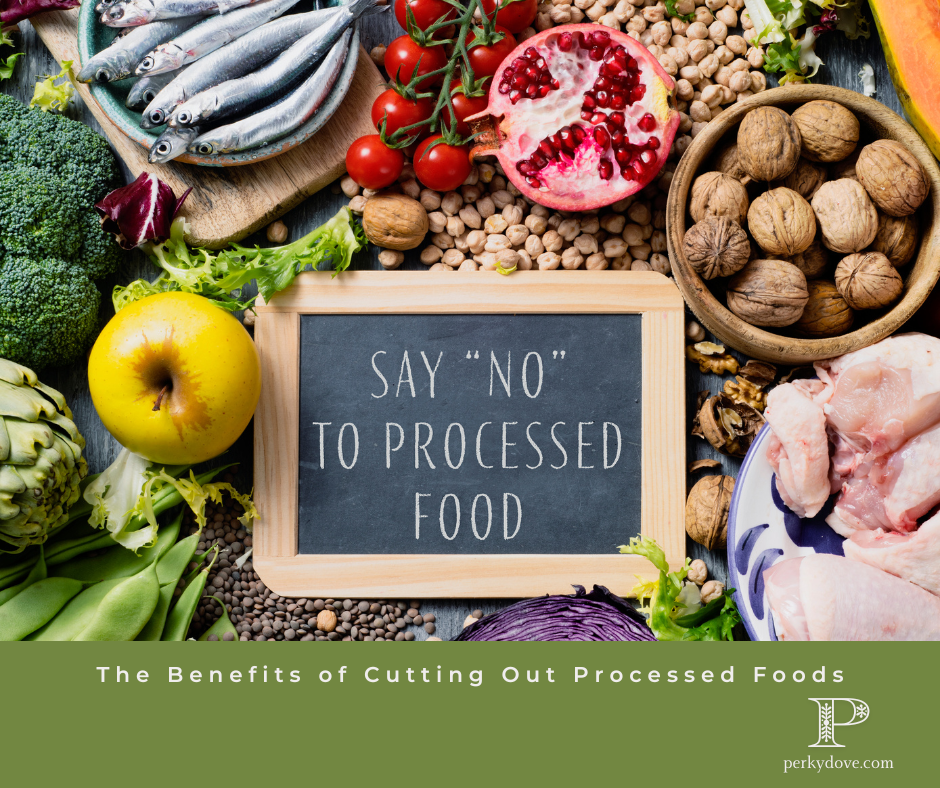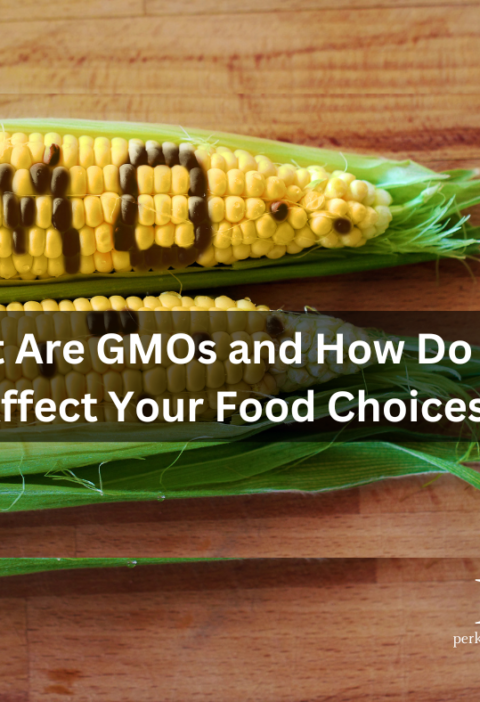We use affiliate links. If you purchase something using one of these links, we may receive compensation or commission.
Introduction
Processed foods have become a staple in modern diets due to their convenience and long shelf life. However, their consumption often comes with hidden costs to our health. Transitioning to a diet free of processed foods can have profound benefits for your body, mind, and overall well-being. In this post, we’ll explore what processed foods are, their potential risks, and the incredible benefits of reducing or eliminating them from your diet.
1. What Are Processed Foods?
Processed foods are any foods that have been altered from their natural state for convenience, preservation, or flavor enhancement. This includes minimally processed items like bagged salads and canned beans, as well as ultra-processed foods like sugary snacks, frozen meals, and sodas.
Key Ingredients in Processed Foods:
- Added sugars
- Refined oils
- Artificial additives (e.g., colors, flavors, preservatives)
- High levels of sodium
Footnote: Ultra-processed foods account for nearly 60% of the average American’s caloric intake, according to a study published in BMJ And in the American Journal of Clinical Nutrition
Vegan, Gluten-Free, Oil-Free Recipes for Lifelong Health
2. Risks of Consuming Processed Foods
Processed foods are linked to a range of health issues, including:
a. Increased Risk of Chronic Diseases
High sugar, salt, and unhealthy fat content in processed foods are major contributors to obesity, type 2 diabetes, heart disease, and hypertension. These ingredients also promote systemic inflammation, a precursor to many chronic illnesses.
b. Nutrient Deficiency
Processed foods often lack essential nutrients like fiber, vitamins, and minerals. This imbalance can lead to deficiencies that affect energy levels, immune function, and overall health.
c. Negative Impact on Gut Health
Artificial additives and low-fiber content in processed foods can disrupt the gut microbiome, leading to digestive issues and a weakened immune system.
3. Benefits of Cutting Out Processed Foods
Reducing or eliminating processed foods can transform your health in numerous ways:
a. Improved Energy Levels
Whole foods provide steady, long-lasting energy due to their natural balance of nutrients. Unlike processed foods, which cause energy spikes and crashes, whole foods keep you feeling alert and focused throughout the day.
b. Better Digestion
A diet rich in whole foods promotes healthy digestion due to its high fiber content. Fiber aids in regular bowel movements and fosters a healthy gut microbiome.
c. Enhanced Weight Management
Whole, unprocessed foods are often lower in calories but higher in nutrients. They help you feel full and satisfied, reducing the likelihood of overeating.
Practical Tip: Swap out processed snacks like chips and cookies with whole-food options like fresh fruit, nuts, and seeds.
d. Reduced Risk of Chronic Diseases
By cutting out processed foods, you significantly lower your intake of harmful trans fats, added sugars, and sodium, which are major contributors to chronic illnesses.
e. Improved Mental Health
Studies have shown a strong link between diet and mental well-being. Processed foods, especially those high in sugar, are associated with increased rates of depression and anxiety, while whole foods support better brain health.
Save Up to 30% On Organic & Non-GMO Groceries
4. How to Transition Away from Processed Foods
Switching to a whole-food diet doesn’t have to be overwhelming. Here are some simple steps to get started:
a. Read Labels
Be mindful of hidden sugars, sodium, and artificial ingredients in packaged foods. Choose items with minimal and recognizable ingredients.
b. Cook at Home
Preparing meals from scratch gives you control over the ingredients and allows you to create healthier versions of your favorite dishes.
c. Gradually Replace Processed Foods
Start by replacing one processed item a week with a whole-food alternative. For example, swap sugary cereals for oatmeal or processed bread for whole-grain varieties.
d. Meal Prep
Set aside time each week to prepare meals and snacks in advance. This makes it easier to avoid the convenience trap of processed foods.
Footnote: Meal prepping has been linked to healthier dietary patterns and reduced food costs, according to a study in Public Health Nutrition[4].
120 Delicious and Healthy Plant-Centered Recipes
5. The Long-Term Benefits
Adopting a diet focused on whole foods isn’t just a short-term fix—it’s a long-term investment in your health. Over time, you’ll likely notice:
- Increased energy and vitality
- A stronger immune system
- Improved skin health
- Better control over your weight and cravings
Practical Tip: Keep a food journal to track your progress and identify how your body responds to dietary changes.
A study published in the European Journal of Public Health found that higher consumption of ultra-processed foods is associated with worse mental health outcomes, including increased symptoms of depression.
GEHE Glass Salad Bowl with Lid, 10.6Inch Large Trifle Bowl Glass Fruit Bowl, 4.7 Quart Large Capacity Serving Bowls for Salad, Pasta, Fruit, Dessert Display Cake, Microwave Safe
6. Mindful Eating Practices
Mindful eating involves being present during meals and paying attention to hunger and fullness cues. This practice not only improves digestion but also strengthens the gut-brain connection.
The Gut-Brain Axis: Your gut and brain communicate through the vagus nerve, and a healthy microbiome can positively influence this connection. Stress and rushed eating can disrupt this communication, leading to bloating, indigestion, and poor nutrient absorption.
Practical Tip: Set aside distractions like phones and TV during meals. Chew each bite thoroughly to aid the mechanical breakdown of food, making it easier for your gut to do its job.
Deeper Dive: Studies suggest that mindful eating can reduce symptoms of irritable bowel syndrome (IBS) by promoting relaxation and improving gut motility.
Meet your delicious daily scoop of greens! Bloom Greens & Superfoods Powder is made with 30+ good-for-you ingredients like prebiotics, probiotics, antioxidants, adaptogens, digestive enzymes, fruits, vegetables and organic superfoods...
7. Limiting Antibiotics and Medications
While antibiotics can be lifesaving, they don’t discriminate between good and bad bacteria, often leaving your microbiome depleted. Similarly, certain medications, like NSAIDs and acid blockers, can impact gut health over time.
Restoring Balance:
- If antibiotics are necessary, consider taking probiotics during and after the course to replenish beneficial bacteria.
- Discuss alternatives with your healthcare provider for long-term medication use that may affect your gut.
Practical Tip: Incorporate fermented foods and prebiotics into your diet after taking antibiotics to support microbiome recovery.
Deeper Dive: Emerging research is exploring the long-term effects of antibiotics on microbiome diversity and its implications for chronic conditions like obesity and diabetes.
footnotes:
Research published in Nature indicates that common dietary emulsifiers, such as carboxymethylcellulose and polysorbate-80, can disrupt the gut microbiota, leading to intestinal inflammation and metabolic syndrome. These additives, prevalent in many processed foods, may alter the composition and localization of gut bacteria, promoting conditions like colitis and obesity.
Further studies have shown that emulsifiers can degrade the mucus layer protecting the intestinal lining, increasing bacterial translocation and triggering inflammatory responses. This mechanism underscores the potential health risks associated with the consumption of emulsifiers commonly found in processed foods.
These findings suggest that the widespread use of emulsifiers in processed foods could be a contributing factor to the rising incidence of inflammatory bowel diseases and metabolic disorders. Reducing intake of such additives may be beneficial for maintaining gut health and preventing related diseases.













I completely agree with this article. Processed foods are so detrimental to our health, and it’s amazing how much better you can feel by avoiding them.
Thank you so much for your thoughtful comment! 😊 I completely agree—it’s incredible how much of a difference avoiding processed foods can make for our health and overall well-being. It’s all about making mindful choices and listening to what our bodies need.
If you have any tips or experiences you’d like to share about your journey with avoiding processed foods, I’d love to hear them! It’s always inspiring to learn from one another.